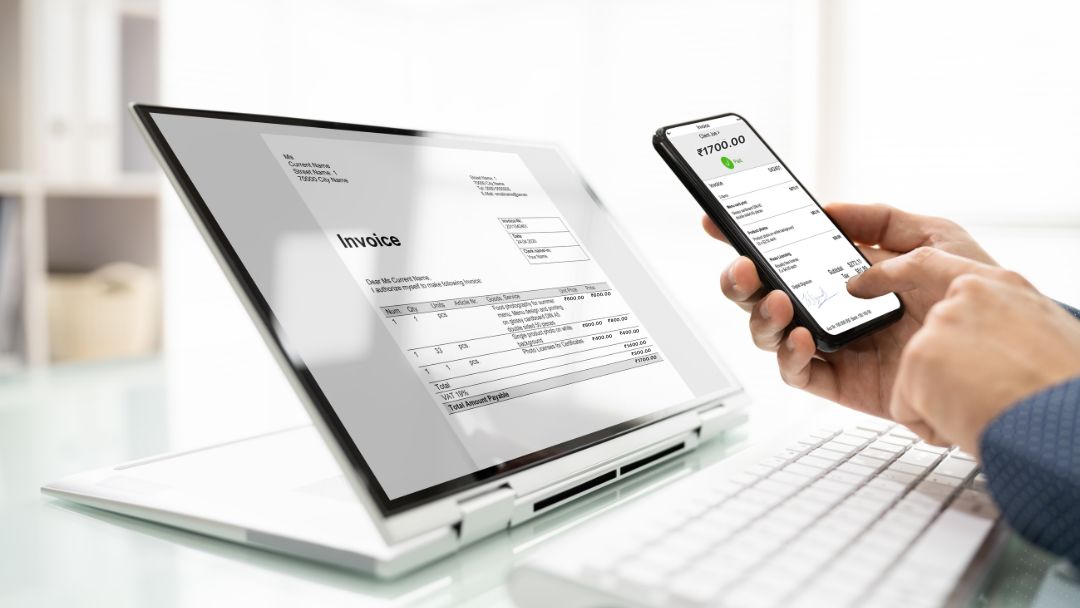WHAT IS E-BILLING?
E-billing, or electronic billing, refers to the process of electronically generating, delivering and managing invoices and billing statements. Instead of using traditional paper-based invoices, e-billing utilizes technology to automate the billing process, making it more efficient and convenient for businesses and individuals.
E-billing typically involves the electronic transmission of invoices, either through email or an online platform, directly to the recipient’s computer or mobile device. The recipient can then review the invoice, make payments, and track payment status electronically.
Benefits of e-billing include cost savings, reduced paper usage, faster delivery, improved accuracy, and easier record-keeping. It eliminates the need for printing, mailing, and manual processing of invoices, leading to time and cost savings for both the sender and recipient.
E-billing is commonly used across various industries, including telecommunications, utilities, banking, healthcare, and retail. It has become increasingly popular as businesses aim to digitize their operations and streamline their billing processes.
An e-billing system is a software-based platform that allows businesses to electronically generate, deliver, and manage their invoices and billing processes. It replaces traditional paper-based billing systems with digital methods, enabling organizations to streamline and automate their billing procedures.
E-billing systems typically offer features such as online invoicing, online payment options, electronic document storage, and communication tools. They allow businesses to create and customize invoices, send them to clients via email or online portals, and track payment status in real time. These systems often integrate with other business software, such as accounting or customer relationship management (CRM) systems, to ensure seamless data synchronization and improved efficiency.

Benefits of using an e-billing system include reduced paper usage, cost savings associated with printing and postage, faster invoice delivery and payment processing, improved accuracy in invoicing, enhanced security and privacy of financial information, and increased customer satisfaction through easier payment options and access to invoice history.
Overall, an e-billing system helps businesses streamline their billing process, increase productivity, reduce errors, and provide a more convenient and efficient experience for both the company and its clients.
E-billing, or electronic billing, has become a popular method for businesses to streamline their invoicing processes and reduce costs and errors. Here are several ways in which e-billing achieves these benefits:
1. Automation and Efficiency:
E-billing eliminates the need for manual paper-based processes, such as printing, stuffing envelopes, and mailing invoices. By automating these tasks, businesses can save time and reduce labor costs.
2. Cost Savings on Stationery and Postage:
With e-billing, businesses no longer need to purchase paper, envelopes, and stamps for traditional mailings. This reduces expenses associated with stationery and postage, resulting in significant cost savings over time.
3. Faster Invoice Delivery:
E-billing enables businesses to send invoices instantly, allowing customers to receive them without delay. This eliminates the time and costs associated with traditional postal delivery, resulting in faster payment cycles and improved cash flow for the business.
4. Reduced Errors and Disputes:
Manual processes often result in errors such as incorrect invoice amounts, missing information, or duplications. E-billing systems can help minimize these errors by automating calculations, validating data, and providing templates to ensure accurate and complete invoices. This reduces the chances of disputes and delays in payments, saving businesses time and effort in resolving such issues.
5. Enhanced Data Accuracy and Reconciliation:
E-billing systems typically integrate with accounting software, enabling seamless data transfer and reconciliation. This reduces the chances of human data entry errors and ensures that the billing information is accurate and up-to-date. Improved data accuracy also facilitates more efficient financial reporting and analysis.
6. Electronic Payment Options:
E-billing systems often offer electronic payment options, allowing customers to make payments directly from the invoice. This eliminates the need for manual processing of checks and reduces the time and costs associated with payment collection and reconciliation.
Overall, e-billing provides cost and error reduction benefits by automating manual processes, improving efficiency, and enhancing data accuracy. By adopting e-billing systems, businesses can achieve significant savings in time, labor, stationery, postage, and payment processing, while also improving their invoicing accuracy and customer experience.
Is E-billing Safe?
Yes, e-billing is generally considered safe. However, it is important to practice caution and take necessary security measures when dealing with e-billing services. Here are some tips to ensure safe e-billing:
Use a secure network: Always use a secure network connection when accessing and submitting information for e-billing. Avoid using public Wi-Fi networks, as they may not be encrypted and can be easily compromised.
Protect your login credentials: Choose strong, unique passwords for your e-billing accounts and avoid using the same password across multiple platforms. Also, for added security, two-factor authentication.
Be cautious with email attachments and links: Be wary of email attachments and links in emails, as they may contain malware or phishing attempts. Always verify the source of the email and double-check the URL before clicking on any links.
Regularly update your devices and software: Keep your devices and software up to date with the latest security patches and updates to minimize vulnerabilities that could be exploited by cybercriminals.
Monitor your accounts: Keep a close eye on your e-billing accounts and regularly review your billing statements for any unauthorized or suspicious activity. Report any discrepancies or concerns to your service provider immediately.
By following these precautions and being vigilant, e-billing can be a convenient and secure way to manage your bills and payments
Summing Up: Should You Choose E-BILLING?
E-billing plays a crucial role in modernizing and enhancing the invoicing process. It offers numerous benefits such as improved efficiency, cost savings, accuracy, security, transparency, and data analysis. Businesses that adopt e-billing can streamline their operations, save resources, and provide a better experience to their customers.
E-billing also provides greater accuracy and security compared to traditional methods. Electronic invoices can be generated directly from accounting systems, reducing the chances of errors or discrepancies. Additionally, e-billing eliminates the risk of invoices getting lost or delayed in the mail, as digital invoices can be instantly sent and received.

